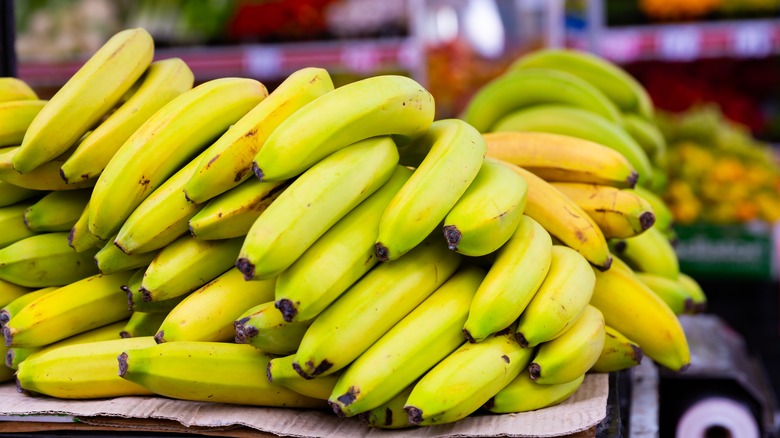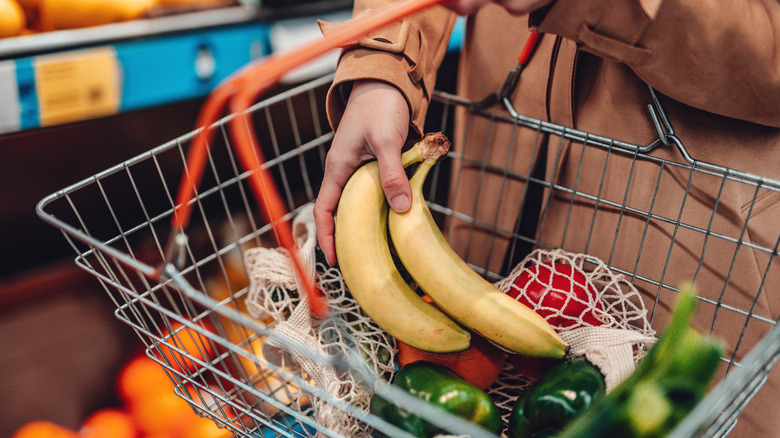Why You Might Start To See A Shortage Of Bananas At The Grocery Store
If you are a banana lover in the U.S., you might want to stock up on the fruit while you still can, because a looming strike may affect your ability to find them at your local store. As of September 24, 2024, 45,000 dock workers represented by The International Longshoremen's Association are threatening to begin a strike on October 1, if a certain set of new contract demands are not met. These include an 80% pay increase over six years, limits on automation technology, and a share of profits made by shipping companies during the COVID-19 pandemic.
The major docks affected by the potential strike reside in the East Coast and Gulf Coast and control roughly half of America's seaborne imports, and over two-thirds of its imported bananas. The Orange County Register reported that if a new contract cannot be agreed upon by October 1, dock workers plan to stop working until a deal is made, which will likely cause a sudden drop in the availability of several fresh fruits. These include kiwis, pears, and clementines, in addition to bananas. If the strike commences, the remaining fruit available in grocery stores may also become much more expensive than shoppers are used to, due to product shortages, extra care required for storage and transportation, and inflated demand.
A banana shortage could soon be a reality for many U.S. shoppers
Bananas are immensely popular in the United States: Research conducted by the USDA found that bananas were the number one most popular fresh fruit purchased in America in 2021. Data from the Mayo Clinic also shows that the average American eats 27 pounds of bananas in one year. The potential strike among dock workers greatly impacts bananas because they are not native to the U.S., limiting its ability to grow them en masse. The country that produces the most bananas is actually India, followed by China, though the bananas found in America are most often imported from tropical countries like Guatemala, Ecuador, or Costa Rica.
If the workers do strike, there will be no one to accept and transport the crates of fruit being imported to U.S. soil, which will likely lead to spoilage and a massive loss of profit for produce importers. The loss to the U.S. economy from a week-long strike could climb up to $7.5 billion (via The Orange County Register).
If you do happen to find a bunch of bananas at the store in the coming weeks, consider checking out the best way to store bananas without bruising and freeze them if you can't finish them — it could be a little while before you spot them again and get to whip up some smoothies and three-ingredient banana bread.


